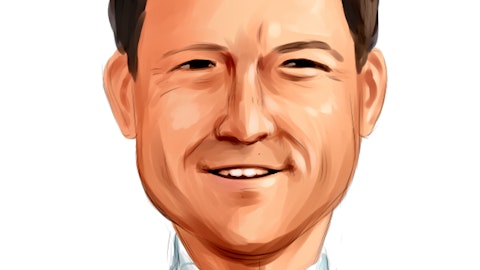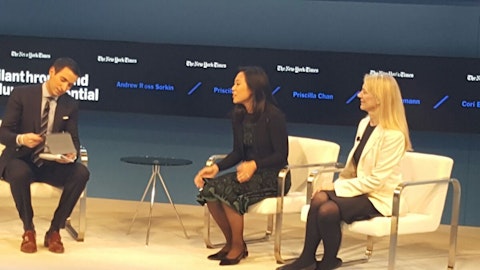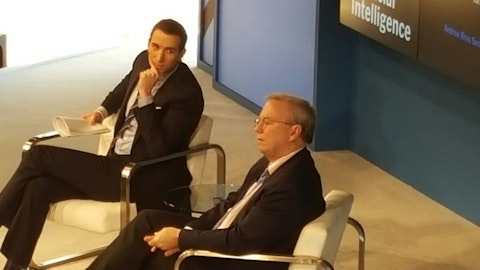4) Embracing a Dividend Growth Investor’s Mindset can Help You Avoid the Biggest Cause of Market Underperformance
The single biggest enemy of long-term market returns is human emotion. Thanks to a well-studied psychological principle called “loss aversion”, it is extremely difficult for most investors to even match the market, even if they are only investing in low cost index ETFs such as the Vanguard 500 Index Fund (NYSEARCA:VOO).
Why is that? Simply put, it hurts twice as much to lose a dollar as gain a dollar.
This partially explains why we have market booms and busts in the first place. As the chart below shows, when markets are climbing people get excited, and often greedy, piling into stocks only after the vast majority of gains have already been made.
Then, when the inevitable and healthy market correction, bear market, or crash happens, they freak out and end up selling at far lower prices.

Source: BlackRock
Basically human nature makes market timing the biggest danger to achieving your long-term investing goals. According to BlackRock, Inc. (NYSE:BLK), unfortunately, up to 60% of clients’ holdings are sitting in cash today. Worldwide, BlackRock’s research suggests that investors are holding more than $50 trillion in cash!
While holding gobs of cash provides a level of comfort, timing the market has proved to be a fruitless endeavor over the years. Remember that bull market returns are often highly concentrated. In Ralph Wanger’s book A Zebra in Lion Country, a University of Michigan study that looked at market returns from 1969 to 1993 found that missing out on just the market’s best 90 trading days would have resulted in 20 times worse total returns. Or to put it another way, the market’s top 1% of trading days accounted for 95% of total returns over this 24 year period.
Even more shocking? He referenced another study that found that between 1926 and 1990, missing out on the market’s top 7% performing months would have netted a total return of ZERO over this 64-year period. Which just goes to show that to truly succeed in the market and benefit from the magic of hyper-compounding, you need to have your money working for you at all times and as long as possible.
So how can being a dividend growth investor help? Simply put, you need to think of your portfolio as a business, with a long-term emphasis on maximizing long-term cash flow and value.
Just as Nike Inc (NYSE:NKE) and The Coca-Cola Co (NYSE:KO) don’t try to time the global economy by shutting down their businesses during times of economic/market/interest rate uncertainty, the same should apply to your portfolio.
Think of it like this. By focusing on your long-term portfolio income and the growing dividends of your individual companies, you can calm yourself and constantly be reminded what matters in the long-term: cash flow.
Did Deere & Company (NYSE:DE) just disappoint on earnings? So what!? A growing global population means that demand for food, and thus farming equipment, is very likely going to rise over time, and so a temporary downturn in a cyclical industry is not just irrelevant for long-term investors, but potentially a great chance to buy a great blue chip dividend stock on the cheap.
After all, John Deere hasn’t cut its dividend in decades and has in fact grown the payout at a 9.7% CAGR for the last 20 years. In other words, because you are a long-term business owner, concerned only with the safety and long-term growth prospects of Deere & Company (NYSE:DE)’s dividend, you aren’t concerned with a few bad quarters or a market crash.
The company has proven itself to be able to reward patient dividend growth investors though numerous business and interest rate cycles, so any correction, bear market, or crash is probably just a chance to buy one of the world’s best farming equipment makers at an even better price and lock in a higher yield on invested capital.
Which brings me to another important fact, one that dividend growth investing can help you appreciate. No matter what the market is doing, or what kind of lofty valuations it may currently sport, something is always on sale for a prudent dividend growth investor.
Whether it is energy stocks during the worst oil crash in over 50 years, REITs thanks to rising long-term interest rates, or biotech/pharmaceutical stocks during the election, the market is almost always irrationally negative over something.
So if you are worried that buying now at close to record highs is just setting yourself up for a loss, dividend growth investing can give you a long-term, value oriented, contrarian mindset that can keep you from trying to time the market, and thus set yourself up for far better returns over time.
Follow Deere & Co (NYSE:DE)
Follow Deere & Co (NYSE:DE)
Receive real-time insider trading and news alerts





